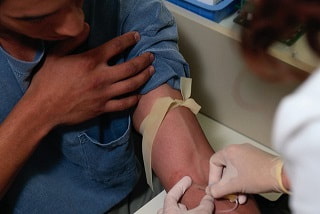
At IAS 2017, the academic HIV conference in Paris, the start of a large-scale efficacy study (phase III) into a preventive HIV vaccine in South Africa was announced (HVTN 702). It is the first efficacy study of this scale since 2009.
The candidate vaccine of the new study is based on the vaccine developed for the ‘Thai Trail Study’ (RV 144, 2009). In this efficacy study in Thailand, over 16,000 people participated. The study showed the candidate vaccine to be 31% effective in preventing an HIV infection. It was the first time ever that a preventive vaccine showed to be effective.
The candidate vaccine for the South African study has been adjusted to a new genetic subtype of HIV that is especially common in Africa. 5,400 HIV negative participants aged 18-35 will take part in the study. They will receive a dose of the vaccine (or a placebo) in month 0, 1, 3, 6 and 12 of the study.
If the results of the efficacy study are convincing (scientists are hoping for an efficacy of at least 60%), the holy grail of HIV prevention comes within reach. To date, the results for this candidate vaccine have been promising. Given the high incidence of HIV in epidemic countries a strong HIV vaccine is necessary to stop the epidemic. Results are expected by 2021.
The candidate vaccine for the South African study has been adjusted to a new genetic subtype of HIV that is especially common in Africa. 5,400 HIV negative participants aged 18-35 will take part in the study. They will receive a dose of the vaccine (or a placebo) in month 0, 1, 3, 6 and 12 of the study.
If the results of the efficacy study are convincing (scientists are hoping for an efficacy of at least 60%), the holy grail of HIV prevention comes within reach. To date, the results for this candidate vaccine have been promising. Given the high incidence of HIV in epidemic countries a strong HIV vaccine is necessary to stop the epidemic. Results are expected by 2021.

 RSS Feed
RSS Feed